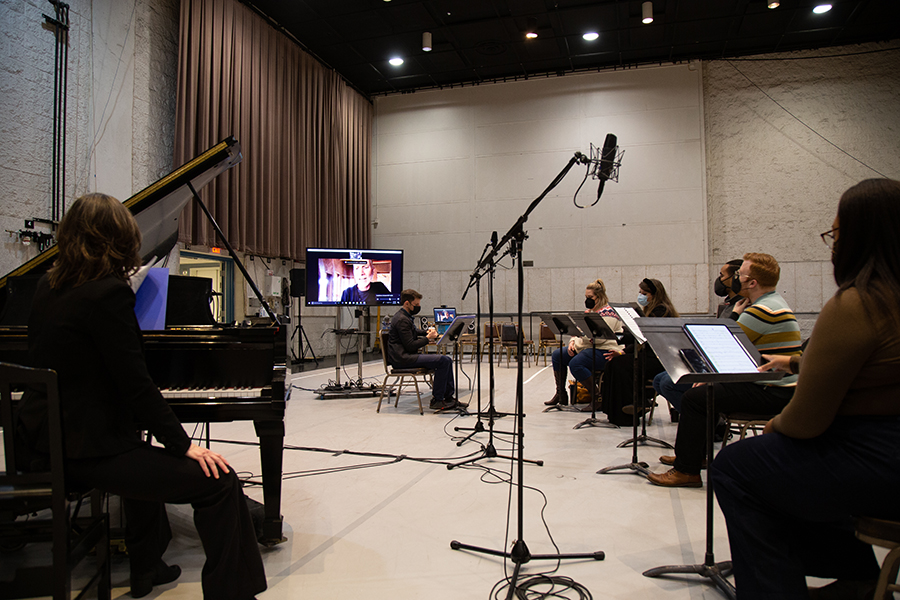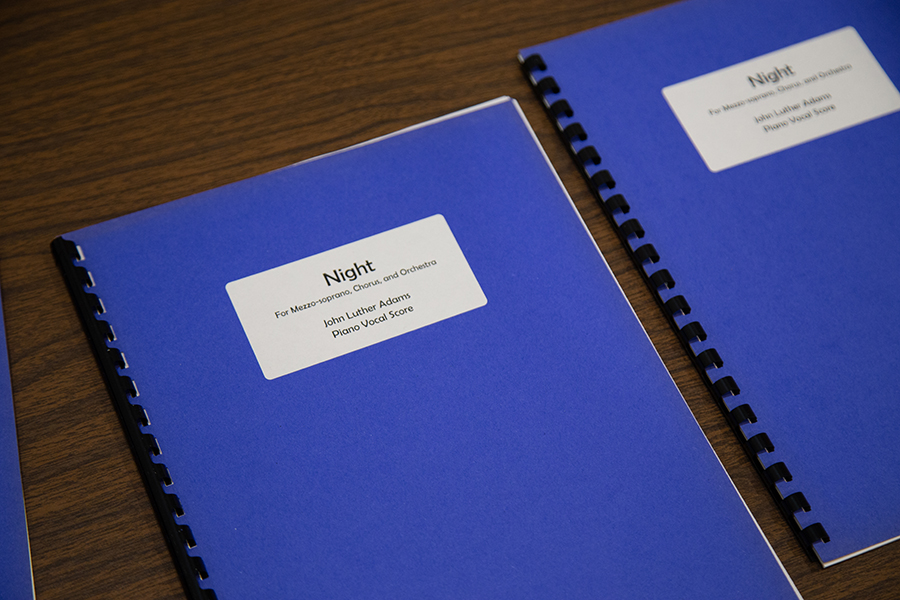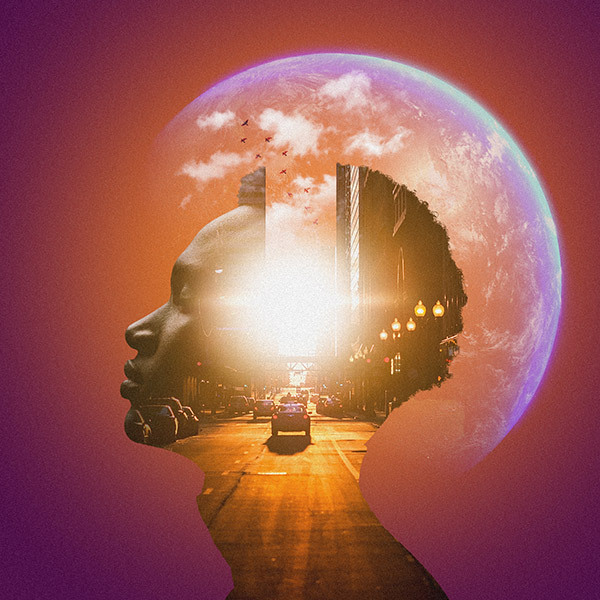March 17, 2023
Notes on Night
"It is the time of earth-changes..."
For three decades John Haines and I were close friends, artistic partners, and neighbors in Alaska. When I was not yet 30 years old, John and I collaborated on the choral-orchestral work Forest without Leaves, and over the years I've composed a number of songs based on his poems.
As John worked on Night (over the course of seven years) he shared numerous drafts with me. But although I recognized from the start that this was a profound poem, it took me many years to understand it more fully, and to imagine how I might approach setting it to music.
Night is written in the voice of the ancient Greek Sibyl, the oracle who lives in a cave and writes her prophecies in leaves. Inevitably, the wind rises and scatters the leaves, making it even more difficult to understand what she is trying to tell us. But it's clear that the news isn't good.
The Sibyl speaks to us across the centuries, reminding us of where our present moment stands in the longer, older story of humanity, of how we got here, and of our uncertain future amid the night that seems to be falling all around us. Even as the oceans rise, and superstorms and wildfires grow fiercer and more widespread, we continue to accelerate the changes we are making to the climate of the earth. As we do, we face ever-growing economic injustice, massive refugee crises, increasing social and political violence, and, ultimately, the threat of our own disappearance as a species.
In my setting of Night, the solo mezzo-soprano is the Sibyl. The chorus is humanity, trying to understand what she is telling us, hoping she may help us find our way through this darkness of our own making.
The words of the Sibyl are a prophecy of warning. Yet the vision she gives to us is not without hope. Toward the end of the poem, in the moment of deepest darkness, she expresses the possibility of a new day to come, when she sings: "...to the sun that has set, whose dawn I cannot see..."
It is the promise of that sunrise, and my faith in the next generations, that keeps me going. As an artist I feel that I'm working toward a new culture that I will not live to inhabit.

Composer John Luther Adams works with artists over Zoom during an early workshop for Night.
In Western Apache storytelling, as important as what happens in a story is where it happens. Every now and then it's good to step back from the stories we are telling and hearing — to remember where we are, who we are, how we aspire to live. Within the story of Proximity, that moment is Night. It's the long, slow zoom shot, up and out, reminding us that we are here — in the city of Chicago, the continent of North America, the planet Earth, and the galaxy beyond.
Night is one scene from a larger opera that I will probably never compose. So, I'm pleased and honored that it's part of Proximity — a work that is so deeply connected to the community in which it's being born. The need to imagine and create healthier communities seems more urgent now than at any time in recent history. And it may be that Proximity can serve as a model for opera that arises from and speaks to community.
Yet as deeply engaged as I am with the issues of our times, I'm also somewhat skeptical of the notion of art as activism. I am two men. One man is the lifelong activist, who was marching in civil rights and antiwar demonstrations before he was able to vote, and who was a full-time environmental activist until he was in his mid-30s. The other man is the artist, who believes that music is his best gift to our troubled world. These two men don't fully understand one another. Yet even as they struggle to balance their apparent contradictions, they share a sense of responsibility to and faith in the next generations.
As a citizen of humanity, I want to voice my grief and demonstrate my outrage. I feel compelled to act. But I am an artist, and in spite of the best intentions of artists, art is rarely effective as political action. My hope is that the music I compose may somehow be of use to someone who truly will change the world. The change that we need will come about only through the combined actions of many people, working in every realm of human endeavor. Yet everything begins in the solitary human heart.
Today we are all asking ourselves: What can I do to change the world? The answers to this question will be different for each one of us. Inspired by the young people who are rising up all around the world, I continue my work in the belief that music has a special power to plumb the depths within us, and to elevate those places where courage and compassion are born.
—John Luther Adams

The piano vocal score of Night.
"Do not wake me..."
The poem is spoken in the voice of a Sibyl, or oracle, as represented perhaps most notably by Michelangelo's immense reclining female figure of Night in the Medici Chapel in Florence. Into the base of the sculpture are carved both a tragic mask and the figure of an owl. Asked once what his figure of Night might say if she could speak, Michelangelo replied that she would say, "Wake me not..."
Reference in the poem is also made to an incident in the life of C.G. Jung who, when once on the point of death, had a dream in which he found himself stationed far in interstellar space from which he could look down on the earth and its human events, completely detached. A return to life and consciousness plunged him into a deep depression.
—John Haines

